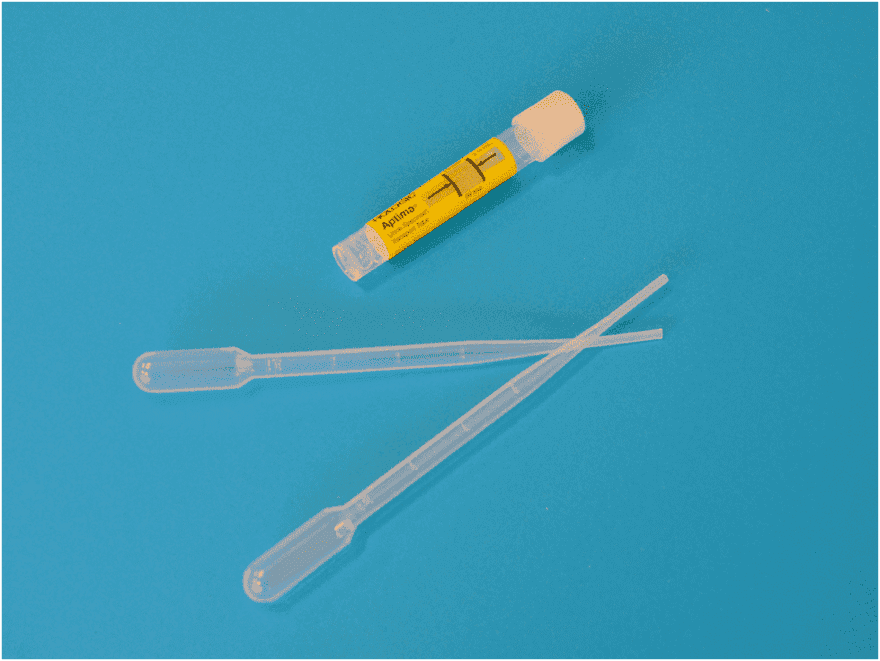Preventive Healthcare
Bilirubin Test: High Vs. Low Levels, Result and Causes
63060 Views
0

What is bilirubin?
Bilirubin is a byproduct of our old, broken-down red blood cells. When the life cycle of our red blood cells comes to an end, they break down, pass through our bloodstream and reach the liver for processing. Your liver will sort bilirubin with other waste material fluid known as bile. The bile is then removed from your body through the intestine. Bilirubin is responsible for the yellow colour of stool.
What do bilirubin levels in your blood indicate?
A bilirubin test is usually done to check your liver health condition. This test is very comprehensive and reveals different liver products in your blood. In case the result shows some low or high values, it indicates the struggle of your liver in some manner. Although abnormal bilirubin level doesn’t always indicate any liver problem, you may have a problem somewhere else in your body.
What causes high bilirubin levels (hyperbilirubinemia)?
Bilirubin level may increase in your blood if:
- Suppose red blood cells break down in your body too fast. It indicates overproduction of bilirubin due to blood disorders like hemolytic anaemia, which destroys the red blood cells.
- Your liver is unable to handle the normal load of bilirubin. Your liver may be unable to handle the normal bilirubin levels toxic load, or you might have chronic liver disease, which has affected the liver functioning.
- Your biliary system is unable to clear the bile effectively. You might have blockages in your bile ducts or gallbladder, which causes bile to leak or back up in the bloodstream.
What causes low bilirubin levels (hyperbilirubinemia)?
Because of certain medications, your normal bilirubin levels can be lower. Such medications include antibiotics, sleeping pills, birth control pills, seizure medications, etc. You don’t have to worry much in case of a low bilirubin level.
What does bilirubin do in your body?
Bilirubin is a waste product that comes from old red blood cells. Normally, it exits through the intestine. Even on its way out, it may provide some health benefits to your body. As per some studies, it may work as an antioxidant to protect you from cardiovascular diseases.
However, too much bilirubin is harmful to your health, as it may build up in the body and can make you ill. It may irritate and make your skin itchy.
What are high bilirubin symptoms?
High bilirubin causes Jaundice, a disease which will make your skin look yellow and eyes white. Jaundice is the first indication which will indicate your healthcare provider to check your bilirubin level. High bilirubin levels will leak into your urine, thus giving it a dark yellow colour. In case of less amount of bilirubin in your stool, its colour will become lighter or it will appear to be of clay-colour.
Bilirubin Blood Test Procedure
In the bilirubin blood test, your healthcare provider takes the blood sample from your arm. You may need to restrict eating or drinking a few hours before the blood sample is taken. They insert a needle in your arm to draw out blood into a vial. You might get a pinching sensation during this process, but it will take only a few minutes to take the sample. Then the sample is sent to the lab for further testing. You will get the results later on.
In case any newborn has Jaundice, the doctor will check their bilirubin level to ensure that it is not too high. Jaundice in newborns is common and doesn’t indicate any serious concern, but a high bilirubin level can be toxic to babies. The blood sample of a newborn is taken by pricking the heel through a sterile lancet.
Direct vs. indirect bilirubin (or conjugated vs. unconjugated)
The bilirubin that reaches your liver for processing is called unconjugated. That implies that bilirubin is not soluble in water. It binds with a protein in your blood called albumin and further reaches your liver. While processing, the liver unbinds the bilirubin from albumin and binds it with a sugar molecule, thus making it soluble. It allows bilirubin to mix with bile and make an exit through your intestine.
The bilirubin which your liver processes is the ‘conjugated’ bilirubin. It is also known as direct bilirubin. Your healthcare provider can’t measure the unconjugated bilirubin directly. Hence, it is measured by subtracting the conjugated bilirubin through the overall bilirubin present in the blood. Below is the direct and indirect bilirubin normal range:
- Direct bilirubin: 0.0-0.3 mg/dl
- Indirect bilirubin: 0.2-0.8 mg/dl
Unconjugated bilirubin can also be written as ‘indirect’ bilirubin in your test report. You might be wondering what is a dangerous level of bilirubin in adults. As such, there is no defined dangerous level of bilirubin, but usually above 1.2 mg/dl is considered a high level.
At what level is bilirubin a concern?
There are slightly different ranges of bilirubin in different labs. Usually, an average bilirubin normal range is between 0.2 and 1.3 mg/dl. This range is normal for both children and adults. In case you exceed this level, your healthcare provider may do a further diagnosis to know the reason behind the rise. This condition may indicate a problem that needs your attention. But usually, high bilirubin treatment is not required, and the bilirubin level can come to normal range by working on its causes.
Normal bilirubin level in newborns is slightly different; it may range between 1.0 and 2.0 mg/dl. Usually, the high bilirubin level in newborns is predictable and self-limited. But still, the healthcare provider will monitor such conditions to ensure that the bilirubin level will not rise too much. Such a rise may indicate a serious condition.
What level of bilirubin is dangerous?
Your healthcare provider will recommend treatment for newborns in case the bilirubin level rises to 15mg/dl in 48 hours or reaches 20 mg/dl in 72 hours. Such a level rise indicates that unconjugated bilirubin has increased the amount of albumin to bind it. The unconjugated bilirubin can cross the blood-brain barrier and can be harmful to the developing brain of a child. It may also lead to brain damage.
Such risk is not the same for adults. In adults, the brain is quite mature, and they have less possibility of such high bilirubin levels. In newborns, the production of bilirubin happens at a faster rate, and they conjugate very slowly. In adults, conjugated hyperbilirubinemia can happen because of any other cause, and such a condition can be dangerous for adults.
What does it mean when your bilirubin is high?
The high level of unconjugated bilirubin indicates that your body is breaking down red blood cells at a faster rate. Such condition indicates:
- Hemolytic disease
- Adverse reaction to blood transfusion
- Sickle cell disease
The reason behind unconjugated bilirubin in newborn includes:
- Premature birth
- Reaction to substances in breast milk
- Blood type mismatch between baby and parents.
If your body faces trouble in clearing bilirubin, then its level will increase. It may lead to biliary disease or gallstone disease.
Your body will have a higher bilirubin count if your liver gets stressed due to some temporary condition like new medicine or a higher dose of alcohol. It can also be an indication of chronic liver diseases like:
- Infections like mononucleosis and viral hepatitis.
- A genetic condition which may have an impact on bilirubin metabolism.
What is the treatment for high bilirubin in newborns?
In newborn babies, phototherapy is used to reduce the bilirubin level. In this, the healthcare provider will put the baby under a lamp that emits blue-spectrum or fluorescent white light. This light converts the bilirubin into a soluble format so that the body can excrete it without conjugating it in the liver. This procedure avoids the deposition of unconjugated bilirubin in the newborn’s brain tissue.
How do you lower your bilirubin levels?
You can lower your bilirubin level if you manage to control the condition which is causing it to rise. Your healthcare provider will let you know the way you can cure this condition. Overall, it would help if you reduced the overall stress on your liver by avoiding the consumption of alcohol or medications like over-the-counter pills. Also, you must follow a healthy diet.
What is a bilirubin urine test?
Your doctor may recommend a bilirubin urine test as a comprehensive part of urinalysis. Through urinalysis, you can analyse your urine content. This test can be a part of your general health checkup. Your healthcare provider may also advise a bilirubin test if you have symptoms of Jaundice or dark-coloured urine. It is abnormal to have bilirubin in urine, but such a condition may arrive if you conjugate high bilirubin levels.
Conclusion
In the case of Jaundice, your healthcare provider will surely recommend a bilirubin test. You may experience jaundice symptoms when your bilirubin level becomes 2-3 times more than the bilirubin normal range. You will also notice dark-coloured urine in this range. In some cases, you might not have any high bilirubin symptoms. Through a bilirubin test, you can know the exact bilirubin range, and your doctor will work on it to narrow down the high bilirubin causes.
Book your slot and trust Metropolis Lab if you want to get a bilirubin test done. You can also book a home test and our qualified blood collection technician will reach you in no time. We are trusted by many and you can find our labs in various cities across India.























 WhatsApp
WhatsApp